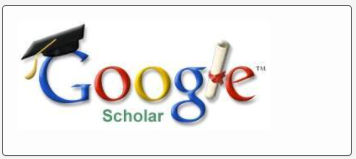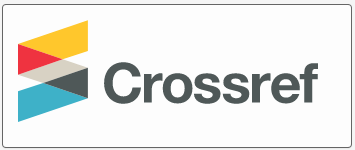Teaching methods of creating scientific style texts for master students
DOI:
https://doi.org/10.52340/idw.2023.91Keywords:
Innovation, academic writing, master’s thesis, scientific style, research projectsAbstract
Academic writing is an obligatory discipline of study in master's and doctoral studies. The assimilation of this subject should develop the student's skills to create analytical and scientific texts.
Therefore, studying academic writing is part of the study of rules of the scientific community. These rules are learned step by step, by writing texts and discussing them with different readers, giving and receiving feedback.
Academic writing requires a review of previously done research. When searching for existing articles based on existing research, students should understand the methods of finding scientific works and be able to critically evaluate sources of information. The subject of the study and discipline largely determine which sources students should use in their work.
The aim of teaching academic writing at the master's or doctoral level is to achieve a high quality of research papers submitted for the defense of the degree.
The main task of the programs is also the development of research skills in students, teaching them to search for the information they need, such as:
- a) Viewing new literature on the subject (limiting the search to novelties) or visiting the library and locating the theme of interest in the catalogue;
- b) Performing a search for information related to the subject in the databases of libraries;
- c) Selection of interesting sources of information from references in the research literature that were found in databases;
- d) Acquaintance with the style of citation adopted in a particular program.
The Ilia State University used two teaching methods for master and PHD Students: Project method and Peer review method.
The proposed article details the results of a study that compares the two teaching methods, their effectiveness and preference, as well as a comparison of the quality of written papers submitted for defense of the degree, after the training phase of both methods.
Downloads
References
Bailey, St., (2015). Academic Writing. A Handbook for International Students. Fourth edition. – Routledge, 222 11.
Coffin, C., Curry, M.J., Goodman, Sh., Hewings, A., Lillis, Th., and Swann, J., (2003). Teaching Academic Writing: A toolkit for higher education, Routledge, 12. Writing an Abstract. Writing Centre Learning Guide. - The University of Adelaide – Writing Thesis Statements: http://www.adelaide.edu.au/writingcentre/docs/learningguidewritinganabstract.pdf (12.05.2023)
Coxhead, A., (2002) A new academic word list, TESOL quarterly, 34 (2). Pp.213-238. https://www.tesol.org (accessed: 02.04.2023).
Gardner, D., A New Academic Vocabulary List., Applied Linguistics 35(3), 2014 Pp.305-327. https://www.researchgate.net/publication/277541863 (accessed: 12.02.2022). DOI: 10.1093/applin/amt015
Graham, S. (2022). Teaching writing in the digital age. Educational psychology section; D. Fisher (Ed.). Routledge encyclopedia of education (Online). Taylor & Francis.
Gugin, D., (2014). A paragraph-first approach to the teaching of academic writing. English Teaching Forum, 52(3), 24-29 (36).
Haryono, A., and Adam, C. (2021). The Implementation of Mini-Research Project to Train Undergraduate Students' Scientific Writing and Communication Skills. Journal of Biological Education Indonesia (Jurnal Pendidikan Biologi Indonesia), 7(2), 159-170.
Huawei, S., & Aryadoust, V. (2022). A systematic review of automated writing evaluation systems. Education and Information Technologies, 1-25.
Jensen, B., (2020) Equity in Teaching Academic Language—An Interdisciplinary Approach., Br., Theory into Practice 59(1):1-7, DOI: 10.1080/00405841.2019.1665417
Silveira, E. A., de Sousa Romeiro, A. M., & Noll, M. (2022). Guide for scientific writing: how to avoid common mistakes in a scientific article. Journal of Human Growth and Development, 32(3), 341-352.
Thompson, Gr. (2021). Academic language: is this really (functionally) necessary? Gr. Thompson, Language and Education 35(19):1-17, https://www.researchgate.net/publication/350590912 (accessed: 12.04.2022). DOI: 10.1080/09500782.2021.1896537
Zarlis, M., Astuti, S., & Salamuddin, M. (2018). Analysis of Reading, Reference and Information Management on the Quality of Scientific Writing. Aptisi Transactions on Management (ATM), 2(1), 63-69.







